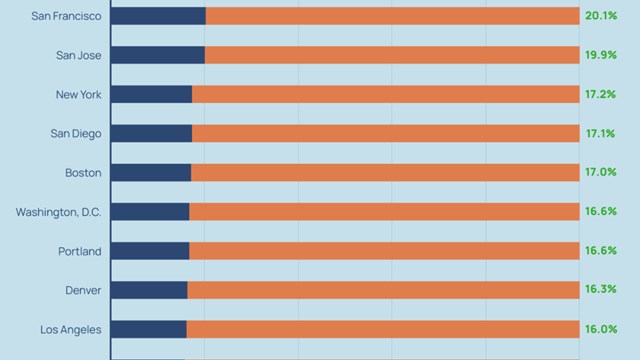The prevailing economic climate has given rise to concerns for us all, especially co-op and condo boards currently in the process of budget preparation. The natural course of action would seem to be to review past budget-related decisions and apply them to present-time decision-making. But what happens when the premises of previous decisions are no longer valid? In light of recent events, what budget-related issues must boards grapple with that they may never have had to consider before?
Make the Time and Do It Right
Boards should always set aside time to focus deliberately and exclusively on the coming year’s project budget. The budgeting process should commence early in the third quarter, before the final quarter of the property’s fiscal year (for most properties operating on a calendar year, the budget process should have started in September). A series of special meetings should be called for this purpose at which all board members and individuals involved in the budget process should be present, especially the president, treasurer, and finance committee/budget committee chairperson. Since the starting point of most budget meetings is a review of the preliminary projected budget prepared by management, it is important that both the managing agent and the management company’s finance professional who prepared the proposed budget also be in attendance. Generally, there is no reason for the co-op or condo’s legal counsel to be present unless there is specific law-related budget issue to be addressed. Nor is it essential for the co-op or condo’s outside accountant to be at the meetings, since the accountant will have a chance to review the budget in the course of preparing the year-end audited financial statement.
Experience dictates the wisdom of budgeting conservatively. This means budgeting expenses at realistic levels, not budgeting income that is uncertain, and providing a line item of one to two percent of annual expenses for contingencies. This contingency line item can be used to cover unforeseen expenses or–if it is not needed–it can be saved in the working capital fund for future expense fluctuations. Too many boards reduce projections arbitrarily in the hope of producing a balanced budget with no increases, only to find their buildings operating at a deficit. Trying to catch up after deficit periods is very difficult; it is much better to budget a small surplus that will be available for the future. When budgeting, the main objective should be to maintain the services desired by shareholders and unit owners at affordable levels. In general, most owners understand that the cost of living increases with time and recognize the need for periodic reasonable increases in annual maintenance and common charges.
During budget preparation, data that includes last year’s budget and the current year’s year-to-date actual income and expense numbers must be assembled and reviewed in light of projected income and expense increases or decreases and other factors that are expected to impact the budget. Normal operating expenses should be dealt with on an item-by-item basis, and should be separated from capital or special items that cannot be paid from operating income. Also, the managing agent or a knowledgeable board member should present the property’s various service contracts, discuss any increases or additional charges that are anticipated in the coming year, and inform the budget decision-makers of the contracts’ expiration dates and how entering into renewal or new contracts will affect the budget.
The Long Road Ahead
Long-range planning is as important as budgeting regular monthly expenses. With interest rates low, many boards are considering the advisability of refinancing their building’s underlying mortgage. While today’s rates are attractive, it is important for the board to consider all the future capital needs of the building before refinancing the primary mortgage, which may result in a substantial prepayment penalty that would offset the anticipated savings. Even though a board may be looking at a large capital project now and considering mortgage refinancing to fund it, the board is responsible not only for financing that one project, but also for anticipating all the capital projects that will be needed during the entire term of the new mortgage. In many cases, secondary financing or credit lines at reasonable rates can be obtained to handle current projects until the current mortgage matures. Under any circumstances, exploration of any activity that may affect the first or second mortgage of the property is certainly appropriate during budget discussions.
Typically, several successive generations of the proposed budget will go through the process of debate and decision-making, so it is critical to dedicate adequate time for discussions at meetings. Sufficient time also should be allowed to comply with any legal requirement to notify owners of any changes in monthly charges. While there are some instances where a required capital assessment may need to be voted on by the owners, decisions related to the budget generally should be made at the board level and not by the owners. Boards that are uncertain about which decisions they can make without involving owners should consult their corporate counsel.
Enter the Owners
The question of when to distribute budget information to owners is a common one. Typically, those owners who complain loudest about not getting enough information do not step forward to help prepare or disseminate it. Today, with aging buildings requiring massive amounts of capital to address Local Law 11 and other capital issues, fluctuating fuel prices, anticipated increases in insurance costs, and other expenses that may be somewhat hard to predict at this time, more detailed information needs to be distributed to owners. If the board determines to increase monthly charges, a notice must go out in a timely fashion to all owners, informing them of the change and the reasons for it.
Insurance, Taxes, and Other Inevitabilities
Insurance and real estate taxes are two expenses that demand special attention during this budgeting season. Owing to the events of September 11 and their aftermath, the insurance industry has already announced that premiums are going to increase significantly–by at least 40 percent–or higher–in some instances. Boards must therefore be mindful of how they are budgeting for this expense, whether or not their building is adequately covered, and what their deductible levels are. Insurance is an area where the lowest cost may not be the best answer, and insurance policies should be reviewed annually prior to their renewal dates to ensure that the property is getting the best value and that the insurance carrier is strong. It is also a good idea for a non-partisan consultant, who is not interested in the commissions received for selling the policy but only in the cost-effectiveness of the program, to review a building’s insurance policies from time to time.
How insurance premiums are paid is another important budgetary consideration. Some buildings have been able to lock in premiums for a three-year period and pay on an annual basis. This may allow the board to stabilize that part of the budget for several years. Some insurance companies also allow for installment payments over the year; however, while financing premiums is also popular, interest rates on premium finance agreements unfortunately have not decreased as rapidly as other interest rates. This may be a time for some buildings to consider self-financing premiums by using working capital funds held in a money-market account. Monthly payments can be made to replenish the account for next year’s premium. With today’s money-market account interest rates at lows around two percent, this is a bargain compared to premium finance agreements.
With regard to real estate taxes, annual certiorari appeals are critical. (These are appeals that contest real estate tax assessments and may reduce the property’s real estate tax obligation.) Because certiorari appeals normally take several years to complete, it is important for boards to stay abreast of progress by communicating regularly with the attorney handling the appeal. Budget time is a good time to make this contact again. Boards should also stay informed of the changes in the real estate assessment from year to year to get an overview of real estate trends. Boards that do not know the current assessment of their building or how it has changed over time should ask their managing agent or accountant for this information.
As anyone who has ever served on a board will attest, handling the finances of a residential co-op or condo is more than a part-time job–even when the best professional team has been assembled. Utilizing committees and assigning various tasks to specific board members will help ease the burden for everyone. And especially in today’s uncertain economic environment, the process of budgeting should be addressed on an ongoing basis in order to prepare a reasonable forecast for the coming year.
Mr. Montayne is a partner with Marin & Montanye LLP, Certified Public Accountants in Roslyn, New York.







Leave a Comment